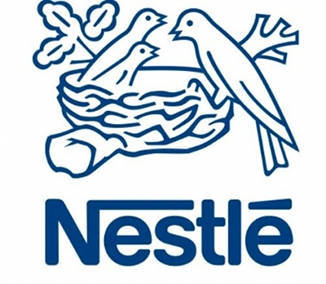 Nestle in the United States, which represents seven operating companies across the country, released its Creating Shared Value (CSV) report last month, the first expanded effort to highlight U.S.-specific milestones and achievements tied to Nestle’s global sustainability principles and commitments.As the world’s largest food and beverage company serving 97 percent of American households Nestle’s mission is to lead the industry in nutrition, health and wellness and to create a more sustainable future. To that end, the new report documents the company’s nutritional, social and environmental progress from the past year, as well as provides updates on the company’s U.S. progress toward Nestle’s global commitments.
Nestle in the United States, which represents seven operating companies across the country, released its Creating Shared Value (CSV) report last month, the first expanded effort to highlight U.S.-specific milestones and achievements tied to Nestle’s global sustainability principles and commitments.As the world’s largest food and beverage company serving 97 percent of American households Nestle’s mission is to lead the industry in nutrition, health and wellness and to create a more sustainable future. To that end, the new report documents the company’s nutritional, social and environmental progress from the past year, as well as provides updates on the company’s U.S. progress toward Nestle’s global commitments.
The new report shares specific sustainability commitments and progress in the categories of nutrition, environmental impact and water use, social impact, rural development and responsible sourcing. Highlights from this year’s report include:
Nutrition, Health, and Wellness
- Portion guidance Nestle rolled out new portion guidance tools and launched an educational campaign, Balance Your Plate, to help consumers build nutritious, delicious and convenient meals that meet the Dietary Guidelines for Americans.
- Reducing sodium Nestle reduced sodium in many of its most popular brands, such as Stouffer’s and DiGiorno, and committed to further reduce sodium content by 10 percent in products that do not meet the Nestle Nutritional Foundation[1] criteria by the end of 2016.
- Reducing sugar Ninety-six percent of Nestle’s children’s products[2] met the Nestle Nutritional Foundation’s criteria for lower sugar, and by the end of 2014, 100 percent of children’s products will meet these criteria.
- Removing trans-fat Nestle committed to reaching zero food and beverage products with trans-fat originating from PHOs used as functional ingredients by 2016.
Environmental Impact
- Reducing waste As part of its commitment to eliminating all forms of waste, Nestle reduced 44 percent of waste per ton of product since 2010 in the U.S. Five factory locations (Anderson, IL; Freehold, NJ; Waverly, IA; Jacksonville, IL; and Medford, WI) reached zero waste to landfill status by the end of 2013.
- Responsible packaging Nestle Waters North America led the U.S. bottled water industry in lightweighting packaging, in part by reducing the plastic content of its PET ½ liter bottles by 60 percent since 1994.Since 2003 alone, more than 3.3 billion pounds of plastic have been saved by the company.
- Adopted responsible sourcing Nestle Purina PetCare implemented Responsible Sourcing Guidelines for seafood that align with Nestle’s global Responsible Sourcing Guidelines, working with experts to track suppliers and contribute to healthier ecosystems. In 2013, Nestle also reached an important target for palm oil, with 100 percent of palm oil now Roundtable on Sustainable Palm Oil (RSPO) certified.
Social Impact in 2013
- Supported local communities Nestle in the U.S. donated more than $2.3 million to support local United Way organizations.
- Provided disaster relief Nestle Waters donated more than 685,000 bottles of water and Nestle Purina contributed more than 60,000 pounds of pet food and 41,000 pounds of cat litter to local shelters across the U.S. for disaster relief.
- Grew supplier diversity Nestle works with over 4,100 small, minority-, women- and veteran-owned businesses, helping to spur local economies.
To learn more about Nestle’s 2013 Creating Shared Value report, visit http://www.nestleusa.com/
posted by: Eric Fujimori
7/16/14













